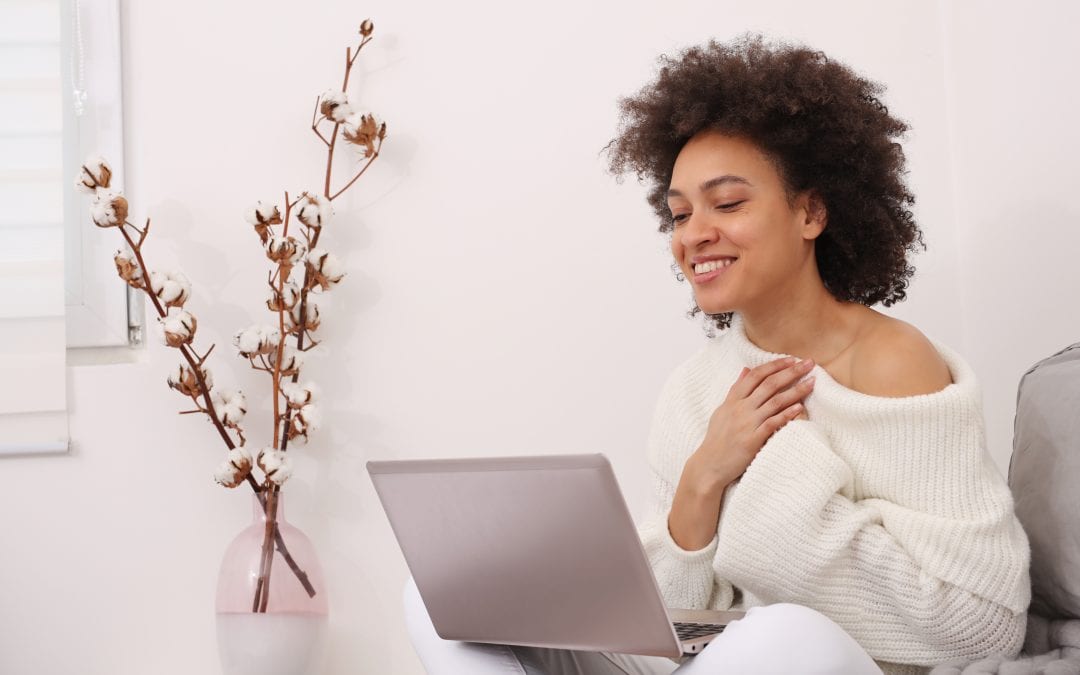Our weekly sessions started at the beginning of June and are designed to help performing artists to set goals and stick to healthy practice routines. It includes new techniques and strategies to help maintain mental and physical health now and into the future.
The sessions are facilitated by Dr Pippa Wheble, a GP who specialises in the physical, vocal and mental health issues for performing artists and teaches conscious breathing for improved mental health and well-being.
Our Director Claire Cordeaux offers an insight in to what was shared during our first two sessions.
In the first session on 2nd June the group reflected on what COVID-19 has meant to us as musicians? Participants revealed how they missed singing, performing and sharing with people, felt cut off from the community that they experience as performers and are uncertain about how to express themselves and their talents.There was fear about the future and reservations about technology and virtual performance. “Virtual choirs feel like singing along, not singing together”. Whilst some are enjoying the opportunity to learn new skills, everyone was struggling to find the motivation to play instruments. Exploring this further revealed that the emotion, connection and ritual of performing is part of the performer’s identity and without performance it is hard to find purpose. On the upside, teachers have been learning new techniques and the distance between the teacher and student online has enabled students to become more self-aware and empowered which has been a surprising and positive outcome. At the end of the first session group members set a goal to return to play. Dr Wheble gave the following advice:
“Whether you are a singer, instrumentalist, dancer or actor – you need to keep using your instrument in order to maintain your physical and mental conditioning for performance, even if your next step is to get your instrument out of its case and hold it for 5 minutes – make a commitment to reconnect with your art every day. Start with 5 minutes daily: warm ups or your favourite tune. Get back into the practice. Gradually build it up by adding 5 minutes every 3-5 days. Be patient with yourself – if you don’t do it today, let it go. Perhaps it was too much. Seek to understand what is holding you back, set realistic goals and start again tomorrow”
The second session on 9th June started with a conscious breath exercise and the theme was “checking in and meditation practice” Denise Devenish led a guided Vipassana mediation. Denise grew up in the music industry and her family work in the industry. As a teenager she sang and toured with Blur and Sinead O’Connor. She later trained as a therapist realising a great need for specialist mental health services in the industry. Her focus is on humanistic and existential approaches. She runs a private practice working exclusively with people from the music and creative industries. www.denisedevenishcounselling.co.uk. She explained; “checking in is a practice of stopping doing in order to be aware of how we feel and what is going on for us in the moment. It’s an essential skill for self-care, so we can navigate what we are doing in a healthy way. As creative people, we need to nurture and connect with ourselves in order to perform.”
Vipassana meditation is an ancient meditation practice which often forms the core of a 10 day silent retreat. It is a practice of being in silence, stillness and presence in order to connect with the self to develop awareness and compassion for the self. For the practice exercise, participants sat in stillness, breathing gently and focusing attention on the space between the nose and the top lip. Denise guided the group: “Starting at the top of the head, notice your body as you scan downwards over the temples, face, neck, torso, arms, hands, tummy, legs, to the soles of the feet, then scan upwards again. If the mind wanders, bring It back to the scan and continue. Notice how you feel.”
Reflecting on this practice, participants noticed tiredness, stiffness, feelings and needs they had not realised were there and were able to acknowledge them. Denise explained “Checking-in is about finding out what you and your body need right now, accepting what you find, allowing how you feel and using that awareness to accommodate and adapt to what you need to do today. Being able to quickly and easily recognise how we are in any moment, empowers us to decide how and when to respond to what is happening. Once we are aware, then we can choose how to respond”
The group participants discussed the different techniques they use in the moment to change how they are feeling including: walking meditation, mindfulness, physical exercise, yoga/stretching, conscious breathing, dance party, shaking and shouting, speak to someone, take 5 minutes for myself, visualise myself doing something that makes me feel how I want to feel, power-postures.
The week’s goal was to commit to check-in with ourselves each day, in the morning or before starting practice or work, and to notice how this changes things.
A list of session leaders and topics is included in the event information.
Sessions are accompanied by a healthy practice diary which helps participants to identify health goals and share experience of how they are progressing with peers. They are encouraged to score themselves using a physical and mental health and wellbeing score. https://www.surveymonkey.co.uk/r/923NK2P.
There are healthy practice resources available https://www.bapam.org.uk/healthy-practice-resources/

